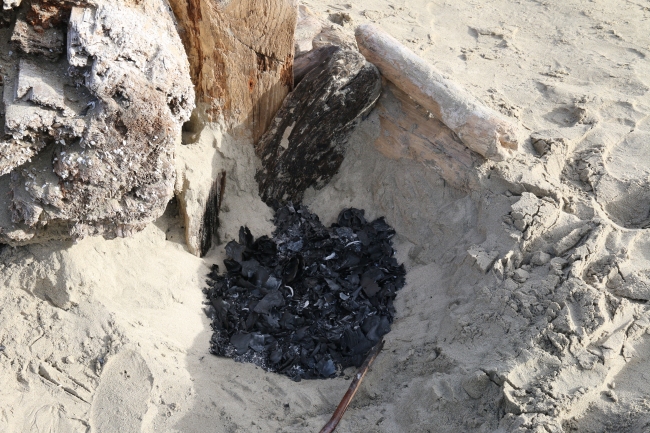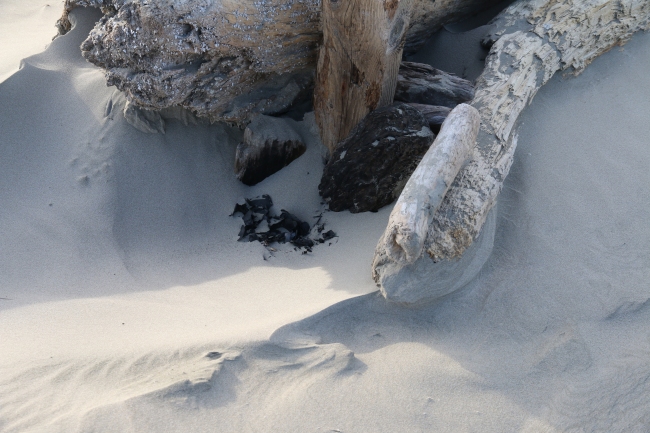Some More on Closure With Your Past
In the chapter titled "Your Possessions Want to Help You", Ms Kondo says:
"Everything you own wants to be of use to you. Even if you throw it away or burn it, it will only leave behind
the energy of wanting to be of service. Freed from its physical form, it will move about your world
as energy, . . . and come back to you as the thing that will be of most use to who you are now."
Like I said, this ain't an ordinary "10 quick tips on cleaning up" type of book! Amazon lists it
as #1 bestseller in Zen Philosophy!!
This blog's author experienced a bit of this during his tidying up experience in September 2015. I went against
Ms K's suggested order of categories and decided to clean up my keepsakes first (she suggests to do these
last). In these keepsakes were some old journal notes that I kept while in college. These were my "troubled"
notes, and were transcribed onto small pieces of paper, receipts, tickets, and also three medium-sized spiral
notebooks. These words were due to a combination of no self-esteem, terminal shyness, "scrupulous conscience"
due to Catholic Education taken too seriously, and a good dose of mental issues.
I decided to have a ceremonial burning at one of the beaches in Central Oregon.
I went out in the early morning, hoping that I could avoid the shreiking Pacific winds, but they were already
under way. I found a hollowed out spot in the sand at one end of a large section of tree trunk that had washed
up on the beach. I placed one of the sheets of paper on the spot and was disappointed to see it move around in the wind
even in this relatively protected hole. So I enlarged the hole and propped some heavy pieces of driftwood on the windward side
of the hole. I was relieved to see that a small piece of paper only moved gently at the bottom of the hole in
the wind.
It all went down in about 30 minutes. The papers, the spiral notebooks (I had previously removed the
metal spirals), and finally the small paper bag that held them. When I finished I walked back to the cabin to get
the camera - being the chronicler that I am. I took a few pictures and then squatted down by the fresh ashes of
my past writings, and bid good bye to the papers, thanking them for their preservation of my words for all these years
(there was some good stuff, and even a poem or two, among the troubled words). My vision failed a couple of times
during the burning and while I crouched there in the cool morning seabreeze.
I thought:
"So now my past is the oxide of my past."
Or maybe I should say "My future is the oxide of my past." The energies that were expended in the past
(and consumed this morning) perhaps were not wasted energies. They were not lost; but instead were transferred to the future.
After spending the day shooting the wave action at a nearby park, I drove back to the cabin, anticipating the melancholy pleasure of taking my small stainless container of a special wine and walking down to my paper-burning site. The shreiking Pacific winds were fully under way as I approached the big log. Streaks of blowing sand were propelled along a few inches off the ground. I came around the south side of the log and was a bit surprised to find the ash pile almost completely buried under fresh sand. A saucer-sized patch of ashes was all that was visible, flapping around in the wind. I squatted down by my morning fire pit but had to jump back up because sand was blowing all over me. So I walked around to the opposite end of the 2-ft diameter log and tried to sit down on the opposite end, about 10 feet away from the ashes. But no relief was found here; I could see the sand powdering itself on my black fanny-pack and my canvas jacket. I had to quickly get up.
So the site would not let me sit near it.
The burned papers wanted to be left alone for the evening. So I walked over to the vegetation line and sat for a
while on another large piece of driftwood. In about 30 minutes the sun had dipped behind the marine layer of clouds, and I
could tell that the sunset would be a bit of a washout. So I snapped a picture or two of my "burning log" with the cloud-hidden sun in the background.
Then I walked around the south end and looked at the ashes again. I did not know whether I would come back in the morning,
so I bid the charred papers goodbye, the bits of ash flapping in the powerful wind. As I walked away I realized what they are now,
in their released state.
They're words.
They're the new words of my future.
 |
 |
The past is the oxide of the past |
They're words |
Copyright © 2018 J.A.